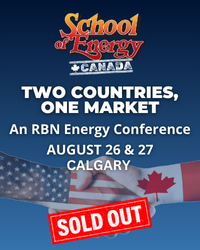Over the past few years, the simultaneous drives for action on climate change, diversity in the workplace, and corporate accountability have coalesced into the environmental, social, and governance (ESG) movement. The energy industry has been at the center of all this, of course, because significant volumes of greenhouse gases (GHGs) are generated with the production, processing, transportation and –– especially –– consumption of hydrocarbons. But while many energy companies have developed ESG strategies and goals, the ESG movement has also come under increasing scrutiny and criticism –– and from all sides, it seems. So where does the movement stand today, and what are its prospects in a world that is now as focused on energy security and affordability as it is on quickly reining in GHG emissions? In today’s RBN blog, we discuss highlights from our new Drill Down Report on the issues surrounding ESG.
It’s not surprising that ESG came to the fore in the late 2010s, or that players in the energy industry — oilfield service companies, E&Ps, midstreamers and refiners — have taken on central roles in the movement. Back in 2015, the Paris Agreement attracted the world’s attention and made it clear that governments and industries of all stripes would be taking serious steps toward reducing GHG emissions. Also, a new generation of entrepreneurs and investors was eager to take socially responsible investing to the next level with the multifaceted aims of making corporations more open, more diverse in their management and staffing, and more committed to improving their environmental performance.
By 2020 and 2021, most energy companies had developed ESG strategies in which they detailed their efforts to reduce emissions of carbon dioxide, methane and other GHGs and to ramp up their efforts on the social and governance fronts. But there’s been some blowback, especially lately. Advocates of more aggressive climate action have asserted that ESG programs by many hydrocarbon-focused energy companies are little more than greenwashing, a subterfuge designed to soften the skepticism among ESG-minded investors and lenders and the general public about their industry and its activities and products.
Join Backstage Pass to Read Full Article








